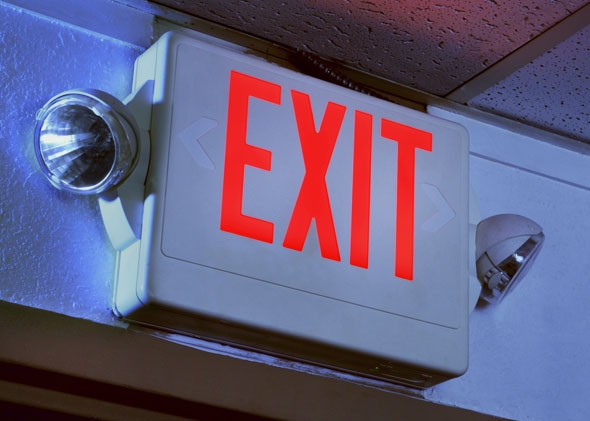
Retirement is No Longer a Door Marked "Exit"
New opportunities are still possible later in life.

Courtesy of Thinkstock
Retirement used to be thought of as a time when people start to slow down and disengage from the world. Today, with longer health expectancies, that traditional view seems passé, yet many struggle to figure out an alternate path. This quandary has opened the door for several commentators to opine on the issue, one of the more famous being former Today Show host Jane Pauley.
“Unlike previous generations, who retired from something, my generation hopes to retire to something else. Midlife keeps on going and going,” writes Pauley. “Even before the economy went into recession, the majority of baby boomers surveyed by AARP reported they expected to keep on working in retirement, which sounds like a contradiction in terms, but it’s not. ‘Retirement’ is a word with new meaning—no longer a door marked exit. Think instead of a door that swings on a hinge, moving us forward into something new.”
She’s right – retirement is now a real opportunity for individuals to get re-educated, spend time getting to know themselves better, or even start a new business. Jane Fonda, the actress and fitness guru, agrees. She puts her focus on re-inventing one’s mindset, which many do during what is sometimes called life’s “third act.”
“Perhaps the central purpose of the third act is to go back and to try, if appropriate, to change our relationship to the past. It turns out that cognitive research shows when we are able to do this, it manifests neurologically -- neural pathways are created in the brain,” said Fonda during a TEDx talk. “It's not having experiences that make us wise, it's reflecting on the experiences that we've had that makes us wise -- and that helps us become whole, brings wisdom and authenticity. It helps us become what we might have been.”
Those are wise words, indeed, yet both women still assume that retirement, although re-defined, happens nearer the end of one’s life. In a world where people are living in a healthy state for a much longer period of time, it may become common for retirement to mean other things as well, such as large chunks of time one takes during one’s life to get re-educated, have children, or pursue some other goal.
Consider that one might select to have 30 years in the business world, 30 years as a doctor, and an additional 20 years accumulating human capital through education. Retirement may come to mean something more similar to a sabbatical. For instance, rather than happening at age 65, retirement might happen earlier, at age 40, later at age 90, or at both points.
Because of the ability to obtain secondary and tertiary life goals, the old definition of retirement – “going out to the pasture to rest” – may become something that doesn’t happen until serious disability. In that case, work-hours would decline only as a result of health decreases in the latter part of a much longer life span. Such a shift can be seen as a throwback to agrarian societies where retirement didn’t really exist. Back then, one worked the fields until they just couldn’t anymore. The difference, of course, is that in the future people will be much wealthier than those in agrarian societies and will likely not be doing manual labor. Indeed, retirement itself is a relatively new concept that was only officially made into American law after President Franklin D. Roosevelt proposed the Social Security Act of 1935.
An alternative to this view is that longer lives may spur an even greater movement towards part-time and flex-time work because older individuals will not want to leave the workforce, but don’t wish to put in full days either. It’s also possible that there will be those who still want a more traditional retirement at the end of life, and those are the people who will have to be good at saving. Ultimately, it’s clear that there will be more opportunity for individuals to choose what retirement actually means to them.
Jane Pauley and Jane Fonda are two thoughtful voices leading the way on an important topic. Figuring out what retirement really means will be one of the next serious things the boomer generation does. As those in the fashion industry might say, retirement is the new black. It’s now cool, and it will go with almost any age you choose.